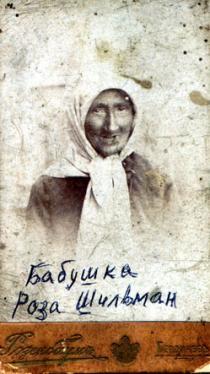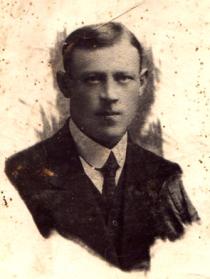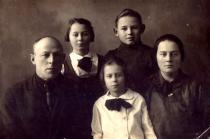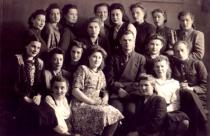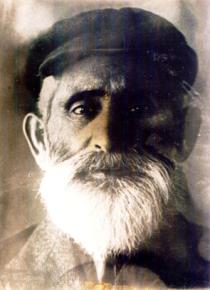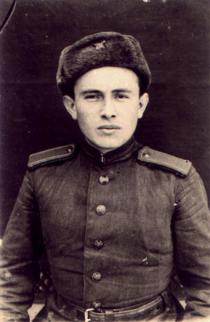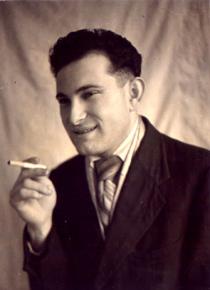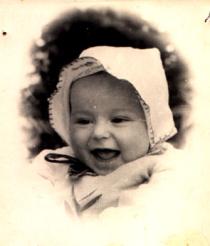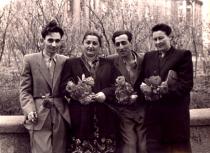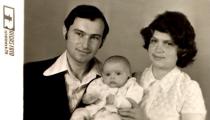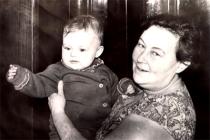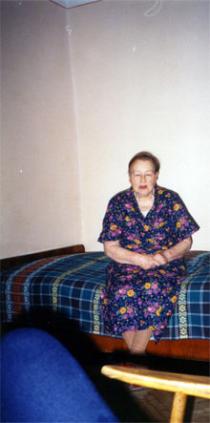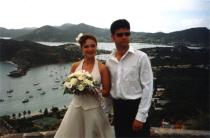My husband Yefim Shyfris. Signed on the backside: 'To my dearest Mama, Papa, and grandmother from their son and grandson Fima on the days of my stay in Donbass'. Gorlovka, 1948.
I met my future husband Chaim Shyfris, a Jew, at a party. It happened in 1950. A year later we got married. We lived in our apartment: my parents, I and Chaim. We didn't have a Jewish wedding. Chaim was a Komsomol member and my father was a Communist and observation of any Jewish traditions was out of the question. We didn't even celebrate Jewish holidays.
Before the war Chaim studied in a Jewish school. He liked skiing and skating. The war began shortly after he turned 15. His older brother Izia was working at the biggest Kiev military plant 'Arsenal'. He was a turner. The plant evacuated to the rear and Izia managed to take his parents and Chaim to Votkinsk [Udmutria, in Russia, 3500 km from Kiev]. Chaim became a turner apprentice at the plant and became a turner after his training was over. He worked as a turner all through the war period staying at work round the clock at times. He had a folding bed in his shop where he took a nap and then got back to work. For his self-sacrifice Chaim Shyfris was awarded a medal 'For heroic work during the Great patriotic war'. He completed 300-400% of his standard scope and once he even did 1090%. All members of his crew received awards. All of them received orders, but he was ill at the time and they decided to award him a medal. Chaim also took part in a dancing and singing group. They toured to villages. He said that once he went out of the warm house when it was freezing and fell ill with lug fever. He survived thanks to people's care. Director of his plant Chebotaryov called an honored therapist from Izhevsk. She took a plane to get there, prescribed injections and then visited him several times to check his condition. His colleagues attended to him: young girls cleaned and washed him, washed his clothes and floors in his room. Older women prayed standing on their knees asking God to give the remaining years of their lives to this young man. This is an example of people's attitudes during the war.
In 1944 Chaim and his parents returned to Kiev. He went to work as equipment repairman at a pharmacy. He did well and his colleagues treated him well. When in 1948 struggle against cosmopolitism began he was fired. It was very difficult for a Jew to find a job. At one time he worked at a plant in Donbass [editor's note: Donetsk basin] in the east of Ukraine, but then he returned to Kiev. In the long run he became an apprentice of an assembly worked at the 'Arsenal' plant. After his training was over he became an assembly worker and then he worked as an assembly turner.

